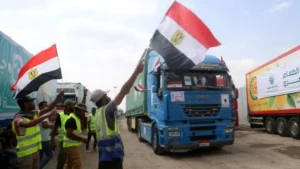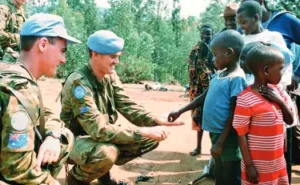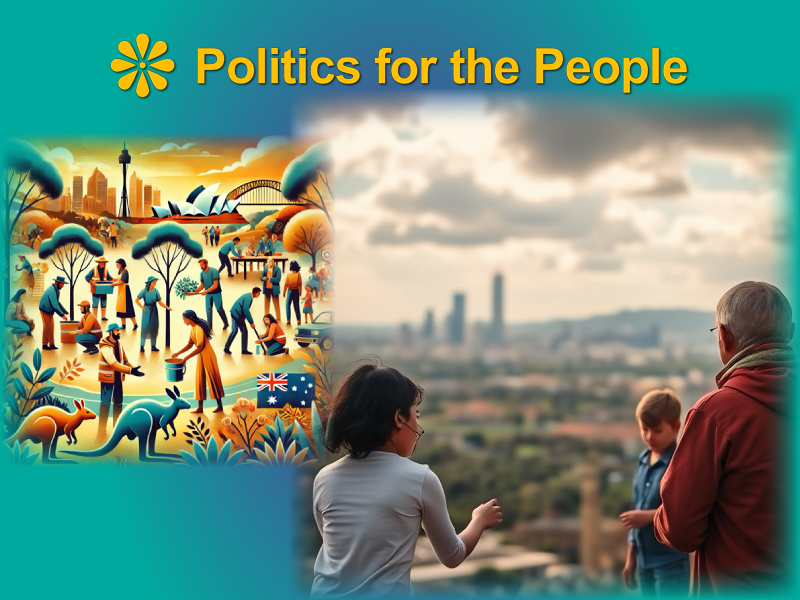Introduction: Humanitarian Values in Australia

In the heart of Australia’s identity lies a deep-seated commitment to peace, enforcing humanitarian principles, and protecting life—a commitment that extends to the principles guiding its law enforcement and military operations. This article delves into the pressing need for these forces to embody the nation’s ethos, focusing on humanitarian values of life protection and the minimization of punitive measures.
Recent public debates and incidents have cast a spotlight on the practices of Australian police, raising concerns about their alignment with humanitarian principles. Similarly, the role of the military in international affairs has been questioned, urging a shift towards non-aggressive, peacekeeping roles. Evidence suggests that a re-evaluation of both forces’ approach is crucial for upholding Australia’s global reputation as a champion of human rights and protector of life.
As we explore the challenges and opportunities facing Australia’s law enforcement and military, we will also consider the legal and moral imperatives that demand a prioritization of life protection. This conversation is not just about policy reform; it is about reasserting the core values that define Australia on the global stage.
Australia’s Law Enforcement: Prioritizing Humanitarian Principles
Humanitarian Principles in Law Enforcement
Humanitarian principles are rooted in the concepts of humanity, neutrality, impartiality, and independence. These principles guide actions with the intent to save lives, alleviate suffering, and support human dignity without discrimination.
Humanity and Neutrality
– Humanity: Actions taken by law enforcement should aim to protect human life and dignity, ensuring that all individuals are treated with respect and compassion.
– Neutrality: Police actions must be impartial, not influenced by political, racial, or other biases. Neutrality helps build trust within diverse communities. Additionally, it is crucial that police are not used to break up non-violent and legal protests about legitimate issues.
Such actions undermine public confidence and violate the principles of democratic expression and free speech. Ensuring that police maintain neutrality and respect the right to peaceful assembly is essential for upholding justice and fostering a fair society.
Impartiality and Independence
– Impartiality: Law enforcement must act without discrimination, ensuring equal treatment for all, regardless of background or circumstances.
– Independence: Police forces should run independently from political pressures to keep public trust and legitimacy.
Practical Application
In the context of law enforcement, applying humanitarian principles means ensuring that all actions taken by police forces are aimed at protecting individuals, upholding their rights, and treating them with fairness and respect, regardless of the situation. This approach emphasizes understanding, compassion, and a commitment to justice, ensuring that the force used is proportional, necessary, and the last resort.
By prioritizing these principles, Australia’s law enforcement can reinforce its role as a guardian of the community, fostering trust and cooperation between the police and the public they serve. Trust is fundamental in ensuring that communities feel safe and supported, which can lead to more effective policing and safer societies.
The Role of Australian Police: Protection Over Punishment
Protection Over Punishment
The Australian police force’s mandate extends beyond keeping public order and preventing crime; it includes the protection of lives and property with a deep-seated respect for human rights. This role requires balancing the use of authority to enforce the law and employing empathy and support to help those in need. The concept of “protection over punishment” underscores the importance of using force only when necessary and always with the aim of preserving life.
Handling Mental Health Crises
For instance, in situations involving mental health crises, the approach should prioritize de-escalation techniques and support services rather than immediate punitive measures. Officers trained in mental health crisis intervention can use strategies such as:
– De-escalation Techniques: Calm and defuse potentially volatile situations without the use of force.
– Collaboration with Mental Health Professionals: Work alongside mental health experts to provide appropriate care and support.
Training and Education
To support this approach, police officers must receive continuous training in de-escalation, mental health awareness, and community engagement. Education programs that focus on empathy, cultural competence, and human rights can empower officers to handle complex situations with care and respect. Specific training initiatives might include:
– Cultural Competency Training: Equip officers with the knowledge to interact respectfully with diverse communities.
– Crisis Intervention Training: Prepare officers to manage mental health crises and other emergencies with minimal force.
Rethinking the Military’s Role in International Affairs
Emphasizing Non-Aggressive Roles
The Australian military’s involvement in international affairs has traditionally included a range of offensive and defensive operations. However, rethinking this role to emphasize non-aggressive, peacekeeping, and humanitarian aid missions can better align with Australia’s humanitarian ethos.
Peacekeeping and Humanitarian Aid

Such a shift involves taking part in international peacekeeping missions, disaster relief operations, and providing support to nations in crisis. By focusing on these areas, the Australian military not only contributes to global stability and peace but also projects Australia’s commitment to humanitarian values on the world stage. Key activities might include:
– Peacekeeping Missions: Deploy troops to keep peace and security in conflict zones, often under the auspices of international organizations like the United Nations.
– Disaster Relief: Provide logistical and material support in the aftermath of natural disasters, helping to rebuild communities and restore essential services.
– Humanitarian Assistance: Deliver aid to populations affected by crises, ensuring that basic needs such as food, water, and medical care are met.
Enhancing Global Reputation
This redefined role can enhance Australia’s reputation as a force for good, dedicated to protecting lives and fostering peace and security worldwide. By leading with compassion and support, the military can play a crucial role in promoting human rights and aiding those in need. Examples of successful humanitarian missions include:
– Timor-Leste Peacekeeping: Australia’s role in stabilizing Timor-Leste during its transition to independence.
– Pacific Island Support: Help provided to Pacific nations during cyclones and other natural disasters.
Legal and Moral Imperatives to Protect Life
Upholding Human Rights and Dignity
The legal and moral obligation to protect life is a cornerstone of both national and international law, reflecting a commitment to human rights and dignity. Australia’s adherence to international treaties, such as the Geneva Conventions and the Universal Declaration of Human Rights, underscores this commitment.
Addressing Controversial Actions
However, there have been instances where actions by police and military forces have been called into question. For example, the controversial use of force by police in handling protests or the engagement of military forces in operations resulting in civilian casualties highlight the challenges in consistently upholding these imperatives.
Continuous Training and Oversight
These events serve as a reminder of the importance of continuous training, oversight, and a commitment to the principles of necessity, proportionality, and accountability in all operations. Key measures include:
– Regular Training Programs: Ensure that all personnel are updated on the latest human rights practices and standards.
– Independent Oversight Bodies: Set up agencies to watch and review police and military actions to ensure accountability.
– Transparent Reporting Mechanisms: Implement systems for the public to report abuses and for authorities to investigate them thoroughly.
By learning from these instances and implementing reforms, Australia can ensure that its police and military forces truly embody the nation’s dedication to protecting life and upholding human rights.
Conclusion

As we have navigated through the critical roles that Australia’s law enforcement and military play in upholding our nation’s humanitarian values, the path forward requires dedication, reform, and a steadfast commitment to protecting life. By integrating humanitarian principles into their operations, these forces can better serve the Australian public and reinforce the nation’s reputation as a leader in human rights and peacekeeping.
Call to Action
We encourage you to engage in this vital conversation. Share your perspectives on social media, discuss these issues within your communities, and advocate for policies that reinforce the importance of humanitarian principles in law enforcement and military operations.
Questions for Readers
1. What are your thoughts on the evolution of these forces towards a more humanitarian-focused approach?
2. Do you believe that prioritizing life protection can lead to a stronger, more cohesive society?
Remember to share this article with your contacts and on social media to spread the message and drive change!
References:
If Australian police officers are allowed to shoot to kill, they should be better trained: https://theconversation.com/if-australian-police-officers-are-allowed-to-shoot-to-kill-they-should-be-better-trained-126820
The Laws governing the Military’s Deployment on the Australian public: https://www.sydneycriminallawyers.com.au/blog/the-laws-governing-the-militarys-deployment-on-the-australian-public/
Peace, Disarmament and Demilitarisation: https://greens.org.au/policies/peace-disarmament-and-demilitarisation
New Bill allows foreign troops and foreign police to be used in emergencies: https://www.greenleft.org.au/content/new-bill-aims-allow-foreign-troops-and-foreign-police-be-used-emergencies

